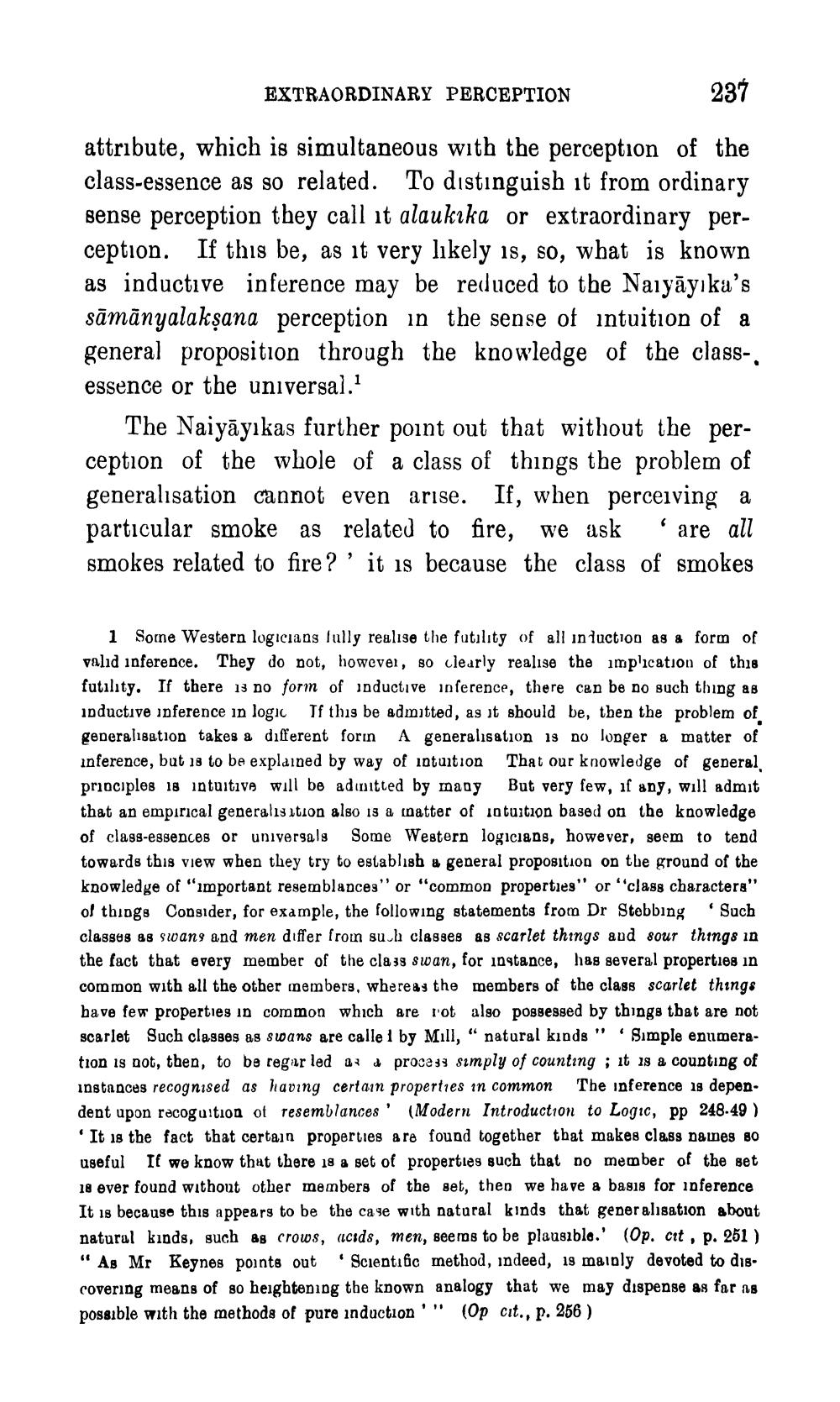________________
EXTRAORDINARY PERCEPTION
231
attribute, which is simultaneous with the perception of the class-essence as so related. To distinguish it from ordinary sense perception they call it alaukika or extraordinary perception. If this be, as it very likely is, so, what is known as inductive inference may be reduced to the Naiyāyika's sāmānyalaksana perception in the sense of intuition of a general proposition through the knowledge of the class-, essence or the universal."
The Naiyāyikas further point out that without the perception of the whole of a class of things the problem of generalisation cannot even arise. If, when perceiving a particular smoke as related to fire, we ask are all smokes related to fire ? ' it is because the class of smokes
1 Some Western logicians fully realise the futility of all in luction as a form of valid inference. They do not, however, so clearly realise the implication of this futility. If there is no form of inductive inference, there can be no such thing as inductive inference in logic If this be admitted, as it should be, then the problem of generalisation takes a different forin A generalisation is no longer a matter of inference, but is to be explained by way of intuition That our knowledge of general priociples 18 intuitive will be admitted by many But very few, if any, will admit that an empirical generalisation also is a matter of 10 tuition based on the knowledge of class-essences or universals Some Western logicians, however, seem to tend towards this view when they try to establish a general proposition on the ground of the knowledge of "important resemblances" or "common properties" or "class characters" of thiogs Consider, for example, the following statements from Dr Stebbing 'Such classes 88 swans and men differ froin such classes as scarlet things and sour things in the fact that every member of the cla 33 swan, for instance, has several properties in common with all the other members, whereas the members of the class scarlet things bave few properties in common which are r'ot also possessed by things that are not scarlet Such classes as swans are calle i by Mill," natural kinds " Simple enumeration is not, then, to be regar led as a process simply of counting ; it is a counting of instances recognised as having certain properties in common The inference is depen. dent upon recoguition of resemblances' (Modern Introduction to Logic, pp 248.49 ) 'It is the fact that certain properties are found together that makes class names 80 useful If we know that there 18 a set of properties such that no member of the set 18 ever found without other members of the set, then we have a basis for inference It is because this appears to be the case with natural kinds that generalisation about natural kinds, such as crows, acids, men, seems to be plausible.' (Op. cit, p. 251 ) " As Mr Keynes points out Scientific method, indeed, 18 mainly devoted to discovering means of so heightening the known analogy that we may dispense as far as possible with the methods of pure induction '" (Op cit., p. 256 )




